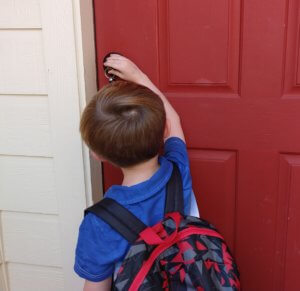 On school days, one in three adolescents comes home to a house with no adult present. Police departments call the hours between 2 PM and 8 PM “crime time,” because more than half of all youthful law violations occur during these six hours. It is generally agreed that at around 12 years of age, parents can consider allowing their child to be a “latchkey” kid, allowing them to be at home by themselves. It is recommended that this occurs during the day and for no more than 3 hours at a time.
On school days, one in three adolescents comes home to a house with no adult present. Police departments call the hours between 2 PM and 8 PM “crime time,” because more than half of all youthful law violations occur during these six hours. It is generally agreed that at around 12 years of age, parents can consider allowing their child to be a “latchkey” kid, allowing them to be at home by themselves. It is recommended that this occurs during the day and for no more than 3 hours at a time.
Studies have shown that latchkey kids have higher levels of fear, stress, loneliness, and boredom, miss more days of school, and have lower academic scores. They are also more likely to experiment with sex and drugs than their peers.
Things to consider before allowing children to stay at home alone:
· Do they know how to properly answer a telephone without disclosing that they’re home alone?
· Do they know what to do in the event of a fire, a medical crisis, or other emergency?
· Do they know where first-aid supplies are, and how to use them?
· Do they know how to contact their parents in an emergency?
· Do they know the names of their pediatrician, the preferred hospital, and the family medical insurance plan / type of coverage?
That’s a lot to consider, but such a discussion should be had with parents of unsupervised children. Parents should also decide on the rules and responsibilities for their child when home without supervision. These may include whether friends can come over, when they can answer the door, what activities are off-limits, whether homework or chores should be done before parents come home, etc.
For the link to the healthychildren.org site on safety at home, visit: https://www.healthychildren.org/English/safety-prevention/at-home/Pages/Is-Your-Child-Ready-To-Stay-Home-Alone.aspx



